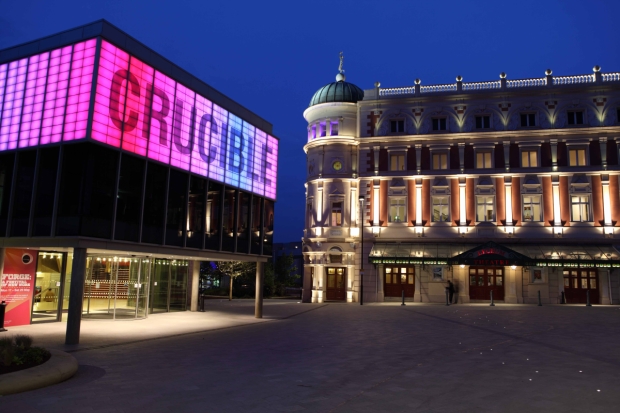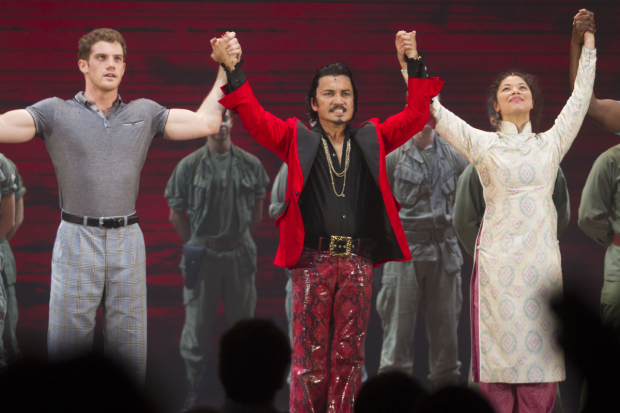New Earth Theatre and Storyhouse cancels Sheffield Crucible show run over ”Miss Saigon” revival

The two organisations released a statement yesterday afternoon, stating they: “are disappointed to announce that our upcoming production of Worth will not be coming to the Crucible in June 2023. This is due to Sheffield Theatres’ decision to produce Miss Saigon in the same period.”
Miss Saigon, set to star Joanna Ampil as The Engineer, runs from 8 July to 12 August as part of the theatre’s new season.
New Earth and Storyhouse explained their decision given the show’s history: “Miss Saigon remains a very contentious musical since its release over 30 years ago, having hurt and angered many viewers due to its highly problematic narrative and portrayal of the Vietnam War and Vietnamese people. The damaging tropes, misogyny and racism inherent in the show completely contradict New Earth and Storyhouse’s values and beliefs, where we centre stories from a BESEA perspective in order to portray a truer understanding of that experience.
“We recognise concerns from our team that working alongside a musical that perpetuates deeply held notions of Asian inferiority would impact their wellbeing. Our commitment to our cast, creatives and technical staff needs to come first.
“We acknowledge that there are a multitude of opinions in this conversation and would like to thank those people we have talked to already for their honesty. Sheffield Theatres have heard our reasons for withdrawal and we are working on a means of engaging in a wider conversation that encourages them to address their tackling of the problematic and complex issues raised by this production in a transparent way.”
Sheffield Crucible released their own statement in turn: “After respectful and considered discussions with Sheffield Theatres, New Earth and Storyhouse have taken the decision to withdraw their forthcoming UK tour of Worth from the Crucible Theatre due to concerns over the programming of Miss Saigon for summer 2023. We respect New Earth’s decision and hope Sheffield audiences will be able to enjoy the work of this important company in the future. Respect and care for all of our artists, staff and visiting companies will always be a priority for us.”
The venue, which announced its 2023 programming during the summer, continued: “There is no denying that past versions of this story have provoked strong reactions and feelings. We have approached this new production sensitive to this and believe this is a chance for us to engage in a fresh way with a majority East and South East Asian company reframing the story.
“Both in the lead up to the announcement of this project and throughout this ongoing process, the creative team led by Robert Hastie and Anthony Lau, have been in close conversation with members of the BESEA community and are keen to continue discussing their plans with concerned artists to keep a positive and inclusive dialogue open.”

© Dan Wooller
Hastie and Lau also released their own thoughts on their upcoming production, explaining some of the nuances of their revival: “Throughout our work on and offstage, we have always been committed to engendering change, to addressing the many inequalities that run through our sector and society. We believe that there are many ways of doing this: sometimes it’s through smaller, more subversive action, sometimes it’s more direct and sometimes it’s by reshaping and transforming existing structures and narratives. This project is the latter. We believe in the equal importance of all of these strategies and think that fundamental change comes when they coalesce – the more angles, variance in scale and exposure, that speaks to different audiences and stakeholders, the better. We are excited by there being more stories, voices and ideas; a cultural landscape where they can collide, entwine and complement is a successful one.
“This was central to our announced programme of three shows, back to back, on the Crucible stage that platformed and championed artists and voices of East and South East Asian heritage. Half a year’s main house programming, in which the overwhelming majority of performers – and a significant number of creative team members – would be from British East and South East Asian communities. We understand and respect of course, the complications that have arisen from this.”
They also stressed that this new revival will also involve re-interrogating the show’s material: “A new approach is about shifting the perspective, how characters are viewed and choosing where to highlight and focus in on character arcs and narrative beats. This is the privilege and the responsibility of any new production granted the rights to approach classic works from the perspective of a new generation of artists. What else is there to find in the text and the score? It is as much about what we don’t show as what we do.
“What happens if you focus on the GIs in “The Heat Is On”, their language and behaviour, rather than scantily clad women dancing? How do you want the audience to feel in this scene, what kind of thinking do you want to provoke? What happens if the Americans in “Bui Doi” aren’t presented as evangelical do-gooders ready to save the world and, instead, reflective of that generation of young men abandoned by their government? What happens if Kim is more knowing and on the front foot rather than being a character defined by her chastity? What happens if “The Morning of the Dragon” is more about telling the story of political transition than about Orientalist spectacle?
“It is about the relationship between design, staging, text, score and context. It is about prioritising the people, their relationships, history and politics as much as it is about any sense of spectacle. It is about being truthful, considered and multifaceted. The reimagining of any classic is about viewing stories through new lenses, that speak to the world as it is today as much as what it was or might have been.
“We understand that Miss Saigon has a divisive performance history and acknowledge the upset it has caused; we want to address this and believe there is a way to have these big and important conversations with a wider audience, that land in a way they might not have done in the past and to continue championing the voices of East and South East Asian artists in this country.”
An additional statement came from BEATS, a group advocating for British East and South East Asians creatives (note there are spoilers for the show in their quotation): “Miss Saigon has a long history of controversy in centring on a Madame Butterfly-type narrative about a teenage Vietnamese sex worker in a war zone who, after a liaison with an American GI who abandons her in pregnancy, commits suicide.
“It is something of a landmark (albeit one we collectively consider a sad one) that this unashamedly commercial show, which has only ever been produced commercially, is now being revived for the first time in a publicly subsidised theatre.”
They added: “While some might rejoice in the show’s high drama and slick musical numbers, we can never shake off the disturbing fact that Southeast and East Asian women are fetishised and hyper-sexualised, harassed and even physically attacked with the lingering trope of pliant availability, while Southeast and East Asian men are emasculated and erased.
“These are damaging cliches which a work like Miss Saigon perpetuates, while also erasing of the real experience of war and violence suffered by millions of Vietnamese women, men and children.
“We may well be a minority voice. But publicly subsidised theatres have a responsibility to listen. We have spoken to Asian actors in the past, particularly women, who felt demeaned and conflicted about appearing in the show but felt they had ‘no choice’. Now here we have one of our Arts Council funded ‘regional powerhouse’ theatres sharply reinforcing that lack of choice.”












